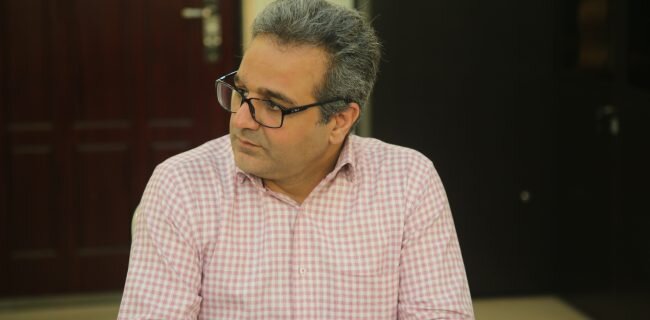Combining theory and practice, a must for indigenizing oil equipment

TEHRAN- Strengthening domestic production and indigenizing the knowledge and technology for production of the products and equipment that Iran imports from other countries has become one of the major programs that the country is pursuing in recent years.
To materialize this objective, knowledge-based companies have played a noticeable part, especially in indigenizing the products and equipment used in the oil industry, which is the major sector in the country’s national economy.
Cooperating with capable domestic knowledge-based companies and startups is one of the very fruitful steps that the oil ministry has taken in its efforts to reach complete independence from the foreign resources for meeting its equipment needs.
In this regard, the Tehran Times had an interview with the Secretariat of Iranian Petroleum Industries Equipment Manufacturers Association (IOIEMA) Mojtaba Eslami to discuss the Oil Ministry’s programs and the challenges in the way of realizing these programs, in detail. What follows is a gist of the conversation.
Theoretical measures
Asked about the Oil Ministry’s programs and strategies for supporting knowledge-based companies and startups that are working on indigenization projects, Eslami noted that the ministry has taken several positive steps so far, however, most of this steps can be categorized as theoretical measures and there is still a long way to the full implementation of them in practice.
“Promising decrees and regulations have been defined in this regard and all three major subsidiaries of the Oil Ministry (NIOC, NIGC, and NPC) have been ordered to follow up on these regulations for supporting the indigenization program in their areas of work, however, theoretical steps are just one aspect of the equation, we cannot just define some regulations and refer some decrees and expect them to become materialized,” he explained.
So the Oil Ministry needs to take its efforts one step further to ensure the realization of the mentioned plans in practice, Eslami said.
Practical solutions
Explaining the measures that the Oil ministry or the government, in general, must take for ensuring the practicality of their decisions and programs, Eslami said: “well, after setting the basics, it’s time to take action, for instance, holding exhibitions (both online or physical) for introducing the industry’s needs, creating a system for the major companies to submit their required technologies or equipment, and financing knowledge-based companies, are some very beneficial measures that can be taken for a starter.”
According to Eslami, the first and foremost step in realizing the goals of domestic production in the oil industry is the identification of the equipment, parts, and machinery that the industry needs and presenting them to the knowledge-based companies so that they would know which areas to work on.
The second step would be reassuring the companies about the long-term purchase of their products, he said.
“It is not enough to buy a prototype and then leave them on their own, they need to be sure that the investment that they are making and the time and resources that they spent for indigenizing the knowledge and then manufacturing a product will be worth their while.”
Most of the knowledge-based companies and startups are not financially strong and their main asset is their knowledge and expertise, so the government should take supporting such companies into serious consideration if it wants to ensure the realization of the goals of its indigenization programs.
According to Eslami, there are currently about 4,000 knowledge-based companies active in Iran, 300 of which are working in the oil and gas industry areas.
“Only 170 of the mentioned 300 companies are especially active in the manufacturing of oil industry equipment and all of them are the members of our association,” he noted.
“These companies have a huge potential and can go beyond the expectations if given the opportunity and resources,” Eslami stressed.
Instead of defining theoretical models and repeated rules and statements, we should focus more on implementation and operationalization, he concluded.
“Preparing the basis for bringing supply and demand, as well as theory and practice together is the first and most important step in this regard.”
EF/MA
Leave a Comment